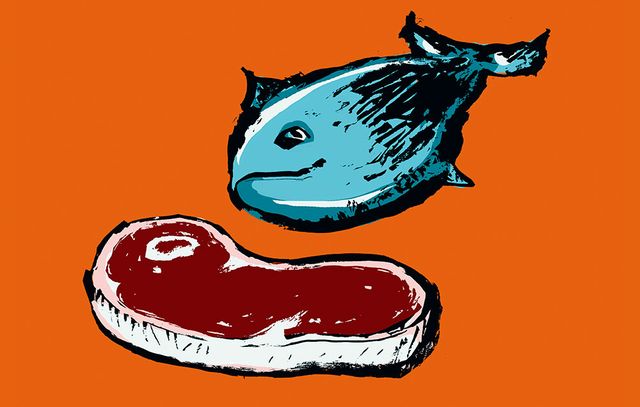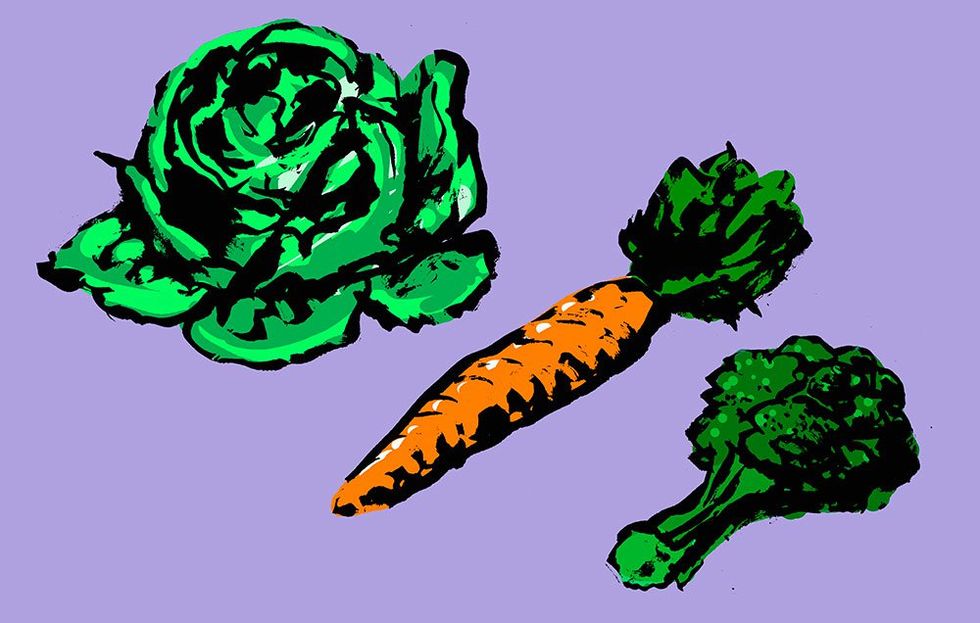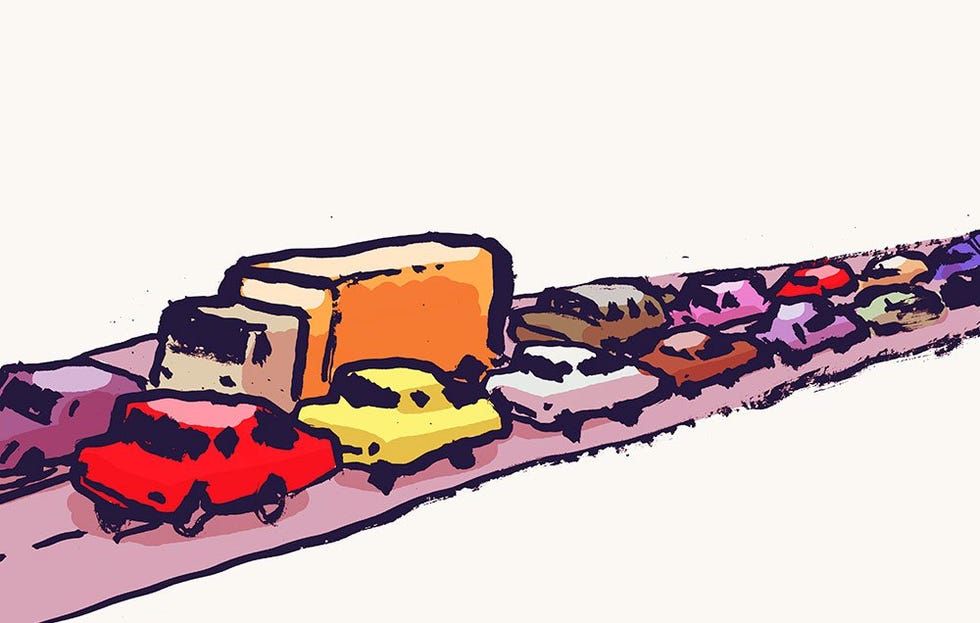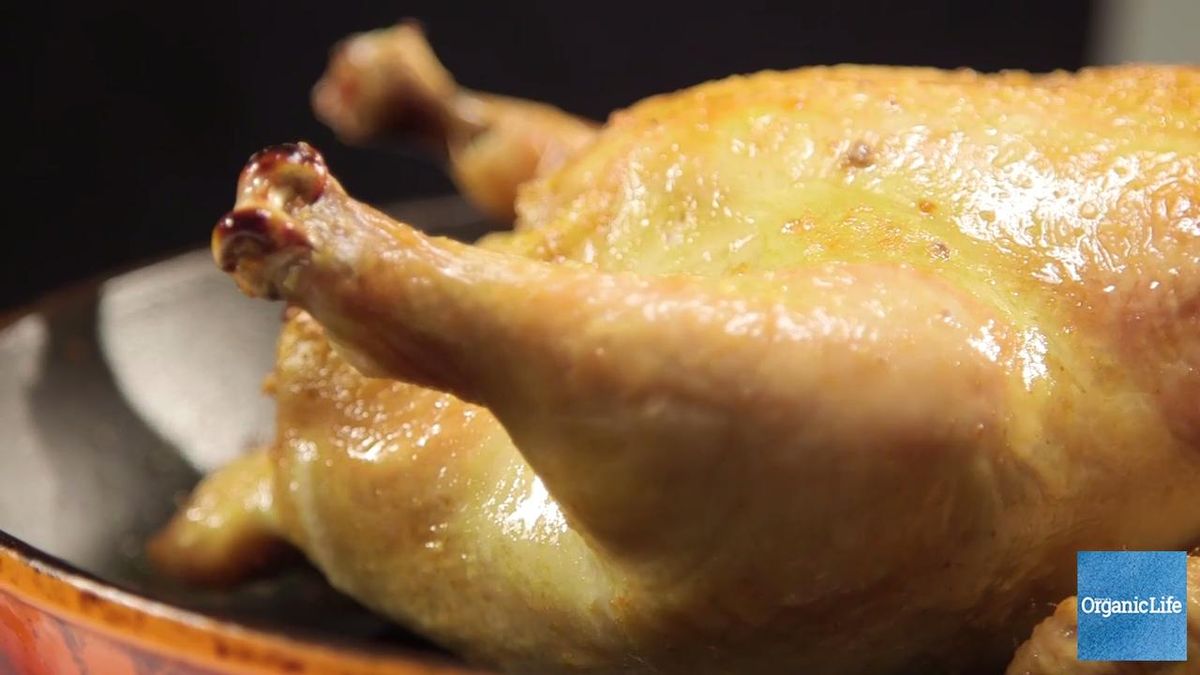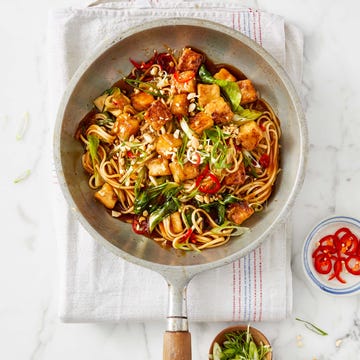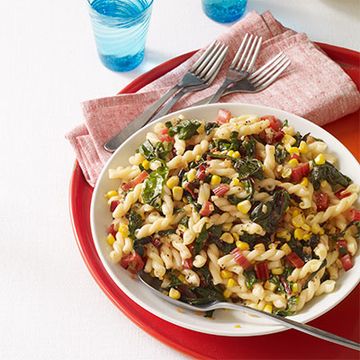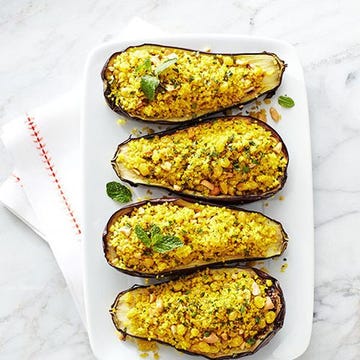This story originally appeared on Rodale’s Organic Life in April 2017.
When I was sixteen, I read an article by Michael Pollan in the New York Times called “Power Steer,” and my life changed. In reading the story, I learned, amongst other things, that steer in America were forced to cannibalize other steer, fed fat and blood and tallow alongside an unnatural corn-based diet; I also learned about the E. coli-tainted floors where the steer were slaughtered before being packaged into shrink-wrapped, perfectly pink steaks.
As a city kid from New York, I had never really given much thought to where my food came from, but faced with the reality of the intensive animal farming industry, I had to do something to stop contributing to industrial meat production and all that it represented, from a humane, ethical, and environmental standpoint. I decided to become a vegetarian.
I wasn’t wrong, necessarily, to take a stand. Countless studies have shown that the amount of meat we eat in the developed world is unsustainable: after research from the UN’s Food and Agriculture Organization showed that 120 million more hectares of land in developing countries would have to be devoted to food production to feed the estimated 2050 world population, a report inNature Communications outlined that, in reality, that population could be fed entirely with the agricultural land we have now—if everyone switched to a 100 percent plant-based way of eating.
Vegetarianism, then, seems like the more sustainable option—and also the more ethical. My reaction to Pollan’s article was, first and foremost, to the inhumane treatment of animals in intensive animal farming scenarios: hens who lived their whole lives in space no larger than a sheet of paper, or calves existing in tiny crates less than three feet wide. By taking meat out of the picture, I thought that I was contributing to a solution.
Related: 14 Vegetarian Foods That Have More Iron Than Meat
But vegetarianism, I later learned, isn’t the only way to eat ethically, and vegetarians can still fall victim to unethical eating.
Mindful Omnivorism is Better than Mindless Vegetarianism
When I became a vegetarian, my first priority was thinking about what I didn’t eat, not what I did: instead of meat, I filled the space on my plate with potatoes, beans, or pasta—I figured that I’d done my job by saying no to steak. (Here are 6 easy vegetarian sources of protein.)
Marissa Landrigan, a former vegetarian and the author of The Vegetarian’s Guide to Eating Meat, had a similar experience when she became a vegetarian in college, relying mostly on prepared foods like frozen vegetarian pot pies and plant-based meats to supplement her meat-free diet.
While Landrigan believes “it is entirely possible to be an ethical vegetarian or an ethical vegan,” she does think that there is a risk, as a vegetarian, in relying too much on “foods of convenience,” which can be just as unhealthy–and just as bad for the environment—as meat. (It would have behooved us both to refer to Peter Singer’s 5 rules of ethical eating.)
The intensive animal farming industry is undoubtedly disastrous for the environment, contributing 7.1 gigatons of Co2-equivalent emissions every year worldwide (14.5 percent of all man-made carbon emissions). It’s also hazardous to human health: in 2011 the intensive animal farming industry used four times as many antibiotics as the human medical industry, according to Pew Charitable Trust. This regular, low-level agricultural use of antibiotics has contributed enormously to the development of resistant bacteria, which kill 700,000 people worldwide every year, according to the Food and Agriculture Organization. (Things weren’t always this way—here’s when we started using so many pesticides and antibiotics in farming.)
(Like what you're reading? Sign up for our newsletter to get health insights, clever kitchen tricks, gardening secrets, and more delivered straight to your inbox.)
But when vegetarians turn instead to tofu, they’re not doing much better for the environment or for their own health. (Here are the 5 worst meat substitutes—and what to eat instead.) Ninety percent of the soy produced in the United States is genetically engineered to withstand herbicides like glyphosate (the active ingredient in Monsanto's Roundup herbicide), deemed a “probable human carcinogen” by the United Nations World Health Organization in 2015. (Here's how much toxic Roundup you're eating.)
And much of the tofu consumed in the United States (though not nearly as much as in Europe) is actually grown in South America, where acres of rainforests are being felled to meet growing demands. According to the World Wide Fund for Nature, the almost 4 million hectares of forests that are destroyed in South America every year can be largely blamed on the production of soy.
Quinoa, the protein-rich pseudo-grain, poses a different, no less dire ethical problem: with the increase of its popularity in the developed world, this staple of the Peruvian and Bolivian diet has become too expensive for local farmers to consume. The Guardian reports that farmers in these countries have reduced their own quinoa consumption and replaced it with less nutritious foods, thus depriving themselves of essential nutrients. (Organically grown quinoa is still one of the 11 healthiest foods for you and the planet—but try one grown in the U.S., such as Lundberg quinoa, from California.)
Related: I Ate 3 Eggs Every Single Morning For A Week—Here's What I Learned
Vegetarians who think that the buck stops with cutting out meat are often, in reality, just contributing to the problem of unethical eating.
Demanding Ethical Meat Will Change the Market
Back in high school, classmates trivialized my vegetarian diet, saying that one lowly high schooler’s decision to say no to meat wasn’t going to change the world.
“Look,” a friend said, pointing to the tray of hamburgers in the dining hall. “Just because you’re not eating one doesn’t mean the cow isn’t dead.”
This is, of course, true, but it’s amazing the difference one small step can make.
In 2003, former ad man Sid Lerner revived the World War I recommendation for “Meatless Mondays.” Since then, the campaign has grown into a global movement, and in the past ten years, American beef consumption has fallen 15 percent; pork consumption fell 4 percent.
Consumer demand has also changed the American market for humane animal products. A great example is the recent cage-free egg revolution: as consumers demand for cage-free increased, individual restaurants and stores from McDonald’s to Walmart responded by refusing to buy battery cage-raised eggs. Today, it’s just not worth it for farmers to produce the latter.
“[Major egg buyers] simply cannot tell consumers that the eggs that they’re going to continually purchase come from chickens who are confined to cages, who can’t move,” says Josh Balk, Vice President of Farm Animal Protection at the Humane Society of the United States. “The issue of farm animal confinement, whether egg-laying chickens, veal calves in crates, or mother pigs in gestation grates, is out of step with consumer sentiment on how animals ought to be treated, and that’s why these major corporations have moved.”
The same thing appears to be happening currently with regards to chicken raised with antibiotics, which chains like Burger King, Jack in the Box, and Wendy’s have already committed to phase out of their supply chains in the coming months or years.
Related: 7 Ways to Make Sure A Restaurant’s Farm To Table Claim Is Legit
Supporting humanely-raised animal products does, then, make a difference, as Catherine Friend argues in The Compassionate Carnivore: while vegetarianism may seem kinder to animals on the surface, not supporting the farmers who are raising meat sustainably and humanely sends the message that you don’t care about their efforts; buying products from people who produce ethical meat tells them that their efforts are worthwhile. (The oceans are whole other kettle of fish—here are 12 fish you should never eat.)
How to Choose Ethical Meat
It’s possible to eat ethically whether you’re eating vegetarian or not–but either way, it requires work, planning, and thought.
Eating ethically, for example, doesn’t translate to just eating locally. A 2008 Carnegie Mellon study by C. L. Weber and H. S. Matthews entitled “Food Miles and the Relative Climate Impacts of Food Choices in the United States” showed that transportation accounts for only 11 percent of a product’s greenhouse gas emissions–the rest comes from the production methods. If your steak is local but industrially produced, then, you should definitely skip it.
Choosing local is, however, a good place to start, because it gives you a chance ask questions about where your food comes from and how it’s produced.
Whenever possible, choose meat and vegetables that come from farms producing both: this method of agriculture is the most natural way to ensure soil health and a small carbon footprint. Farms that produce solely meat end up with far too much fertilizer to distribute economically, while farms that produce solely crops, particularly if they till, tend to contribute to soil erosion and carbon loss.
“When you have animal integration,” explains Ryland Engelhart, co-founder of Kiss the Ground, a California non-profit dedicated to increasing awareness about the importance of building back healthy soil, “you’re able to convert sunlight, through the grass, and turn that into fertility, and get that back into the soil to build the soil bank account year after year.”
Related: 26 Plants You Should Always Grow Side-By-Side
The most important thing is to keep asking questions and remain conscious of the effects that your diet has on your health, the health and wellbeing of animals and producers, and the environment.
There are, of course, limits to what any individual can feasibly do. In The Omnivore’s Dilemma, Michael Pollan describes his attempt to prepare a meal using only ingredients he had hunted, gathered, or grown himself, noting that this meal was “equally unsustainable” as a fast food meal: you can’t shoot your own wild boar and forage your own mushrooms every day. But it’s definitely a start to become aware–and humbled–by where your food comes from, whether your food includes meat or not.
As for me, my shopping is a lot more careful than it once was. I’m no longer blindly vegetarian, buying conventionally produced veggies and assuming I’ve done my part. I buy most of my food through a local coop, where I can get to know the farmers that I am buying from and ask them questions about their practices. Whenever I’m not sure about origins, I try to eat vegetarian or buy certified organic meat and dairy. (Here’s why grass-fed dairy is better for you—and how to avoid the fake stuff.)
I believe that as long as I’m buying and eating consciously, I’m taking a step in the right direction.
